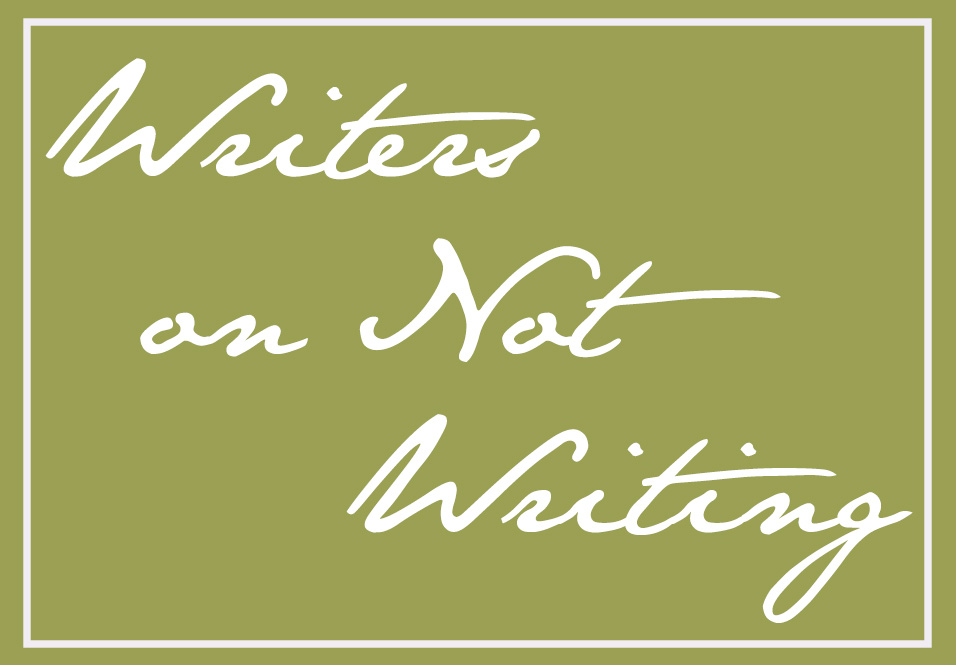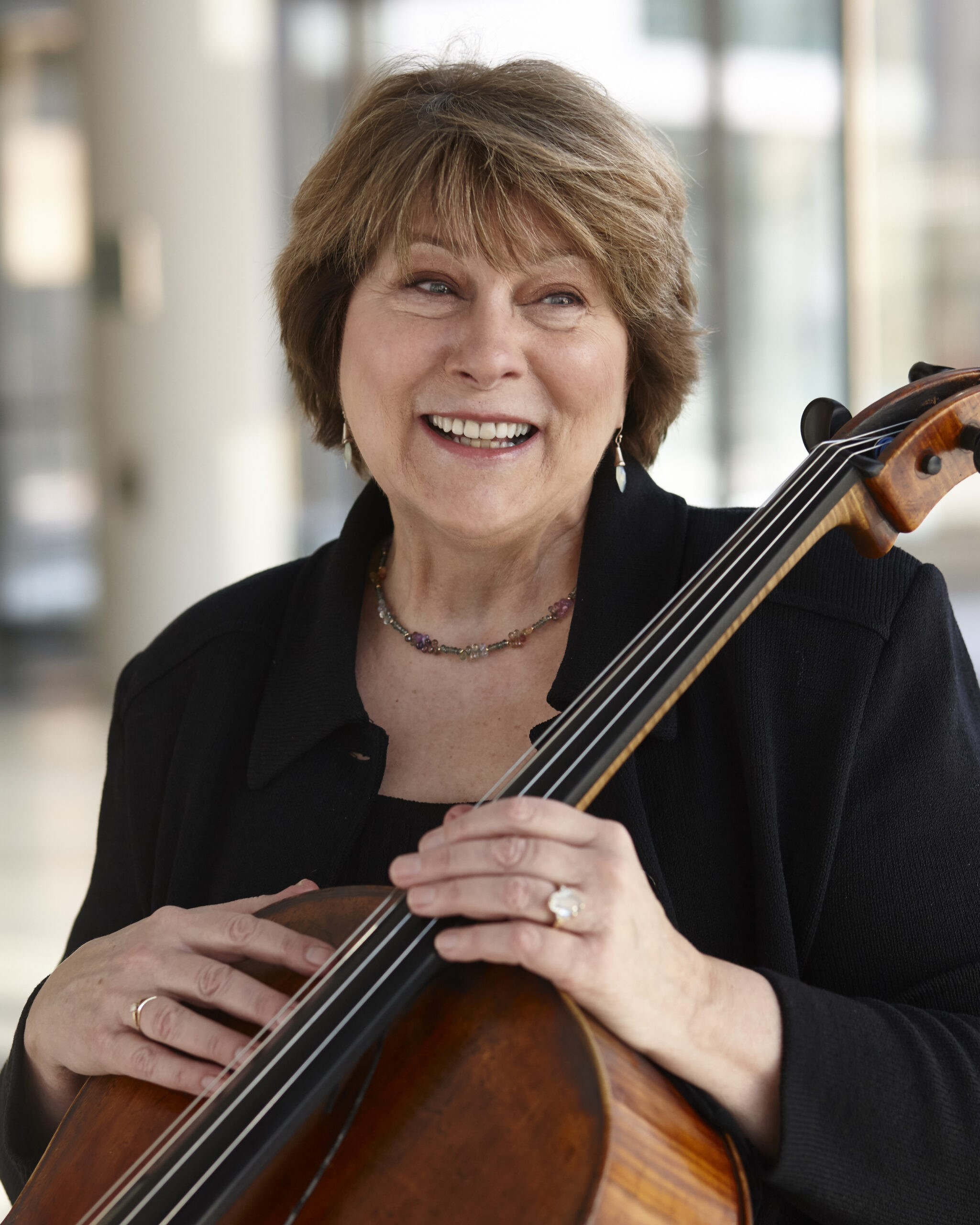Writers pour so much energy into their craft that sometimes we forget that creative pursuits other than writing can fill us up in other important ways. Here, we’ll look at what writers do when they aren’t writing, and how those pursuits affect the return to the page. This month, we hear from two writers—Marcia Peck and Sheree Winslow—on how learning new things (including uses of AI!) help fuel their love of writing.

For fifty years I’ve assumed that nature, long walks, and meditation have been the wellspring of my writing life. Who can argue with the wealth of inspiration and energy to be found there? All that is true, but while contemplating the question, “What fills me up when I’m not writing?” I find—to my utter surprise—that the chief answer turns out to be… my work life.
As a cellist with a major American symphony, I’m not necessarily referring to the inspiration of our great musical canon, the symphonies and concertos and operas of the legendary composers. Rather, I find I have overlooked the possibility that—instead of serving as a limiting straitjacket—the orchestra’s idiosyncratic schedule has actually provided a syncopated but dependable rhythm that would define my writing time in surprising and helpful ways. Morning rehearsals, evening performances, no two weeks alike: there is an uneven rhythm to the week that transforms those other—writing—mornings or evenings into a sublime, complimentary getaway.
Not only has the quirky allocation of time proven unexpectedly fortuitous, but the physicality of playing an instrument also turns out to be an unforeseen inspiration. In a strange way, after all the scales and etudes (constant revision!), it’s necessary to take the thinking out of music-making and to trust muscle memory and the momentum of the music itself to take the lead… not unlike letting a sentence or paragraph or character insist on making its wishes known.
Similarly, in performance—for me at least—there is an oddly contradictory sense of being both engineer and passenger. I experience the baffling feeling that while I am creating the music, the music also inhabits its own life force. Almost as if—in the moment—a performance may be driven by the power of its own energy, apart from me, much like when a story or book insists on its own momentum and we scramble to honor it. I can’t say that that experience translates directly to words on a page, but on a good day, I look for something like that self-propelling power, independent of me, when I’m writing.
Now recently retired, I’m constantly aware that the music in language is an enormous gift to writers. I read my work aloud, looking for sounds that surprise or heighten meaning, sounds that engage the ear. I’m learning Italian—the language of music!—not because I have a specific use for it, but because I love the sound of it. I find it miraculous that an infinite combination of vowels and consonants—just like our system of major and minor scales—has the power to describe our infinite universe in infinite ways. Language—varied, colorful, sublime, fanciful or funny or fumbling—it’s our cherished and monumentally rich palette.
Marcia Peck
For nearly six years, I’ve worked full-time in communications at two different University of California campuses. Since my weekdays are primarily spent researching, reading, and writing, I need nighttime diversions that don’t feel like work.
Last year, I took two classes through Stanford Continuing Education. The first was From Idea to Launch: Create and Produce Your Own Podcast, taught by Ryan Campos. It gave me a chance to work with sound and use a different set of tools to tell stories.
The second class, Introduction to iPhoneography: Using Your Smartphone to Make Extraordinary Images taught by Yoni Mayeri, expanded the ways I use my iPhone camera. I quickly learned that I was underutilizing the powerful technology in my device. Part of the class was learning how to retouch and edit photos, which helped me turn photos into art.
Both classes were highly organized and well taught with demos and homework sometimes using AI, which is another learning pursuit. At work, I started an AI Club with colleagues. We demo and discuss applications, learning from one another.
 I’m curious by nature, so diving into a new topic or craft contributes to happiness—learning as a form of self-care.
I’m curious by nature, so diving into a new topic or craft contributes to happiness—learning as a form of self-care.
Additionally, I enjoy learning from and about other people. The Stanford Continuing Education classes were remote and open for international enrollment. I met fellow students from China, India, Mexico, all across the U.S., and other countries. Through homework assignments and class, I enjoyed learning about people whose lives and interests were both different and similar to mine.
For several years, taking a photography class was on a vision board that hung in my office. Photographs play a significant part in my writing process. I use old photos to stir memory and look for details that I may have missed or don’t remember. Since my work often highlights locations, my photos are sometimes published alongside my words. Part of the reason I wanted to improve my photography skills was to better document my life.
But the class also showed me how I could push the limits of color and light to create images that stir emotion in the same way a well-crafted sentence might. I think it’s also useful to use the tools of framing, cropping, and editing with a different medium to broaden my perspective, which I can apply to writing.
The podcasting class was an opportunity to work with material about my father’s failed run for governor of Montana when I was in high school. Though I primarily write nonfiction and personal essays, I avoid this subject matter because of the harassment my family experienced during and after the campaign.
Through interviews and review of old articles, I started to process feelings I didn’t know how to express when I was younger. I also learned things about my parents and how limited funds impacted the campaign. I want to revisit this part of my life in writing now.
Regarding AI, I see opportunities to use AI on tasks like developing summaries for book proposals, organizing notes, and brainstorming, all of which make space for more creative writing time. But I’m also beginning to play with image generation more. AI never seems to produce exactly what I’m requesting, but it errors in fabulous ways, adding humor and unexpected insights about behavior and patterns.
Sheree Winslow
Marcia Peck is a retired symphony cellist, living in Minneapolis, who returns to Cape Cod at every opportunity. Her debut novel, Water Music: A Cape Cod Story, winner of the New England Book Festivals “Regional Lit” award, Maincrest Media “Literary Fiction Award, the International Impact Award, and Next Generation Indie Book Awards, was published by Sea Crow Press in 2023. Other work has appeared in New Millenium Writings, Chautauqua Journal, Gemini Magazine, Glimmer Train, 26 Minnesota Writers (Nodine Press), Tribute to Orpheus 2 (Kearney Books),and other places. Marcia’s essays have appeared in Showcase: the Magazine of the Minnesota Orchestra, Strad Magazine, Strings Magazine, the Minneapolis Star Tribune, and Musical America. Her flash fiction, “Long Distance,” was nominated for a Pushcart Prize
Given the name Many Trails Many Roads Woman by the medicine man of her Northern Cheyenne tribe, Sheree Winslow (she/her) embraces a life of wonder and wander. Her writing has received many honors including awards in Midway Journal’s flash prose contest and Beecher’s nonfiction contest. Her flash prose was recently selected for inclusion in Best Microfiction 2025 and has appeared in Brevity, Passages North, The Masters Review, The Sun’s “Reader’s Write,” and Storm Cellar, among others. Sheree lives in Southern California where she works as a ghostwriter at the University of California—Riverside. She received her MFA from Vermont College of Fine Arts.
Curated by Jen Dupree
